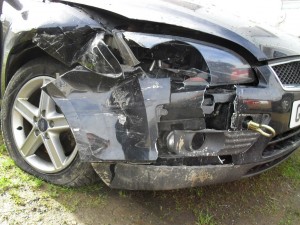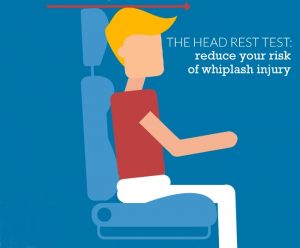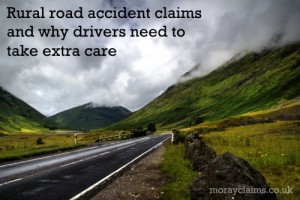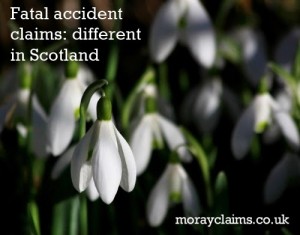If you are involved in a road traffic accident while riding a bicycle, are you still eligible to make a claim for compensation if the accident was not your fault but you were not wearing a cycle helmet at the time? The answer is very likely ‘yes, you can still claim successfully'. The issue which arises is contributory negligence. No Legal Requirement to Wear a Cycle Helmet Unlike seatbelts in cars, there is no legal obligation to wear a cycle helmet. In theory, this would not prevent a finding of contributory negligence in any event. With seatbelt cases, the introduction of the legal requirement in the 1980s did not affect the various, fixed levels of contributory negligence that had been developed by the courts during the 1970s (and which still apply today). However, there do not seem to be any reported decisions of the courts to date in which a cyclist has had his or her compensation reduced for contributory negligence due to failure to wear a cycle helmet. The English Continue Reading
Accidents at Work: Now More Difficult to Win (But Still Winnable)
I have blogged previously about the proposed changes in the law relating to Employers’ Liability and it has now come to pass in the Enterprise and Regulatory Reform Act 2013. In broad terms, this is good news for employers and, especially, their insurers and bad news for employees. It was the law that breach of regulations under the Health and Safety at Work Act 1974 could give rise to civil liability. Goodbye to Strict Liability In some cases, this meant that there could be strict liability of employers – in other words, liability without needing to show any fault or lack of care on the part of the employer. The case that came to be the classic modern example of this involved a postman who was injured when the front forks of the bicycle he was riding – and which his employers provided to him - collapsed without warning. It was established that the cause of the equipment failure was a hidden defect. The employers had not been negligent. There was probably nothing they could Continue Reading
Bus Passenger Accidents While Getting Onto A Bus And How To Avoid Them
I commute most days to work by bus and am lucky that the most serious ‘accidents’ I have had to date have both affected my clothes only. Knee Slicers and Sticky Chocolate Seating Leg-room is not always great, depending on where you sit on the bus. I once managed to make a neat straight cut through the knee of one trouser leg on the horizontal metal strip on the back of the seat in front of me. More embarrassing was sitting down on a seat which someone had smeared with chocolate sauce. I only realised when I had difficulty standing up to get off at my stop. I’ve learned from that experience to wear jeans on the bus and change into a suit once I get to the office. Bus Timetabling Problems Buses and coaches usually operate according to timetables. Bus drivers have to do their best to keep things running on time. This is a difficult job when there are so many variables. These include things like: how much traffic there is on the road; how many passengers want picked Continue Reading
If someone runs into the back of you, is it always their fault?
Rear-end collisions are usually blamed on the driver behind — but there are rare situations where responsibility can be shared. The general rule is that, if you run into the back of another vehicle, you will usually be held at fault and will not be able to claim against the driver in front. This is because drivers are expected to leave enough space to stop safely if traffic ahead slows or stops unexpectedly. This law seems to be generally well understood. What if the driver in front behaved unreasonably? Many people assume sudden or unexpected braking automatically shifts blame — in most cases, it doesn’t. From time to time, we get enquiries from people who have rear-ended another vehicle but consider that the accident was not their fault because the driver in front stopped their vehicle suddenly or without good reason. An example of this is where you are second in the queue at a T-junction and you and the car in front are both turning left. You can see there is Continue Reading
If You Are Injured By An Animal, Can You Make A Claim?
If an animal causes you an injury, can you make a claim for compensation? The modern law of negligence owes a lot to a mollusc but what if you have an accident in Scotland involving an animal – can you claim for your loss or damage? The Cow's Adventure One case from the 1950s involved a clever cow which managed to escape from premises in Inverness’s Eastgate, where it was due to be auctioned. It then managed to climb the stairway of a nearby property and fall through the floor into the shop below. In its struggles it turned on a tap, causing flooding. It also trampled and damaged stock. The Sheriff in that case decided there could be a successful claim against those responsible for the cattle at the time, if they could be shown to have been negligent. Dog Bites In our experience, the most likely injury scenario will involve a person being bitten by an animal, typically a dog. The law here is principally regulated by the Animals (Scotland) Act 1987. Liability Continue Reading
Vicarious Liability: How It Can Help A Work Accident Claim To Succeed
If you have been injured at work by the negligence of a fellow employee or in any situation by a person who was acting in the course of their employment, your claim can be based on what is known as vicarious liability. Often there will be other grounds of claim too but the most common use of negligence as a means of winning an employer’s liability case is vicarious liability. Vicarious liability is the legal doctrine that shifts the blame for an injury onto a person or organisation that did not directly cause the injury but which employed the person who did act negligently. The employer has to take responsibility for the negligence of the employee because the employee is deemed to be an agent of the employer. If an employee is to blame for causing an accident and was acting within the general scope of his or her employment at the time, the injured person will be able to claim against the employer. The theory of vicarious liability is one thing. In practice, it is not always Continue Reading
Can I Choose My Own Personal Injury Solicitor?
The answer is generally “yes”. Please read on for an explanation. In many situations if you have been injured as the result of an accident, you will have other property losses that will be insured and you will be contacting your insurers to claim for those. The most common example is road traffic accidents. Your car may well have been damaged and you will contact your insurers to see about repairs or a replacement vehicle. Your motor insurers will these days usually ask you if you have been injured in the accident. If you have been injured, they will refer you on to a specific law firm as if it is “the normal thing to do”. It is important to be aware that there is a financial relationship between the insurers and the solicitors they recommend to you. The relationship operates on the basis that the insurance company agrees to pass on all their claims to the solicitors and the solicitors pay a referral fee for the privilege. It means that the recommendation is not necessarily Continue Reading
Winter driving means an increased risk of accidents: what steps should you take?
Wintry weather is persisting into March around the Moray Firth. Inevitably, in winter, there tends to be an increase in road traffic accidents. At this time of year, we are more likely to be driving in the dark and on roads affected by snow and ice. Repeated freezing and thawing also increases the number and size of potholes in the roads. What steps can you take? Equipment to carry in your vehicle The Royal Society for the Prevention of Accidents (RoSPA) recommends certain basic safety equipment to keep in your vehicle at all times, so you are prepared if the weather deteriorates. This should include a towrope, de-icing equipment, a spare wheel, a torch, a first aid kit and a warm blanket. Checks on the vehicle itself In addition, you should check that your vehicle itself is properly prepared for winter conditions. Check your tyre pressure regularly and ensure that you have sufficient tyre tread as this will reduce the risk of loss of traction and skidding (as well as improving Continue Reading
Whiplash injury: one way to reduce the risks
Whiplash gets a lot of negative press. It is a type of injury where there is scope for people exaggerating their aches and pains to get more compensation or even inventing them completely. The Westminster Government is currently on a mission to weed out spurious claims. On the other hand, if you have ever suffered a whiplash injury to your neck or back, you will know it is not something to be taken lightly. The injury is very real. Whiplash can cause a considerable amount of pain and inconvenience to the injured person. Everyone knows that prevention is better than cure and here’s an idea for simple action you can take to reduce the risk of you being the victim of a whiplash injury. It all boils down to proper adjustment of the head restraints in your vehicle. How best should you position the head rests in your vehicle? It is not sufficient to have a head restraint attached to the top of your seat. You must make sure it is adjusted to be in line with the top of your Continue Reading
Rural Road Accident Claims and Why Drivers Need to Take Extra Care
Rural roads account for over 70% of fatal accidents, according to statistics published by RoSPA. In Scotland, trunk roads, such as the A9 and A96, are maintained by independent companies but more minor roads are the responsibility of local authorities. Of course, the more minor roads tend to have a greater amount of bends and ups and downs. The increased dangers for drivers are obvious: whether it’s from other traffic, such as slow-moving farm vehicles, or from the state of the road itself. Roads authorities can rarely be blamed for accidents A Court of Session decision from June 2012 – arising out of a tragic accident in North-east Scotland - has provided a reminder of the considerable limitations on local authorities’ duties and the emphasis that is placed on the personal responsibility of the individual driver. In these cash-strapped times, the duties the law imposes on local authorities to maintain road markings and signage are not likely to increase in the foreseeable Continue Reading
Fatal Accident Claims: Different in Scotland
On 16 July 2009, Peter McGee fell down the stairs at his home in Springburn, Glasgow. Two days later, he died in hospital as a result of complications from his injuries. His wife, Catherine, and other family members raised an action in the Court of Session against RJK Building Services Ltd, who had carried out joinery work at the property on the instructions of Glasgow City Council, Mr and Mrs McGee’s landlords. In an Opinion issued on 18 January 2013, Lord Drummond Young found that RJK were to blame for Mr McGee’s injuries and death because they had been negligent in the way they fitted a handrail on the stairs. The handrail had come loose from the wall as Mr McGee descended the stairs, causing him to fall. A lengthy marriage At the time of his death, Mr McGee was 71 years old. His wife was a few months younger than him. They had been married for 36 years. An area of personal injury law where Scotland is different Personal injury law is applied identically or Continue Reading
Denial of Compensation and Justice: Enterprising Reform
The Enterprise and Regulatory Reform Bill, currently going through the Westminster Parliament, might not sound to you as though it should have much to do with personal injury law but it does. Specifically, it is claims for injury arising from accidents at work that are potentially affected and the consequences are significant. A late amendment was introduced to the Bill by the Government in October 2012, without consultation. If this new provision becomes law, the effect will be to make breaches of health and safety regulations – which currently give rise to civil liability on the part of employers – no longer actionable. UK health and safety law has undergone a revolution particularly in the last 20 years as a result of workplace directives and regulations from the EU. This is sometimes referred to as unnecessary “red tape” but the fact is that the number of workplace accidents has reduced significantly as a result of developments in the law throughout the whole of the 20th century. Continue Reading







